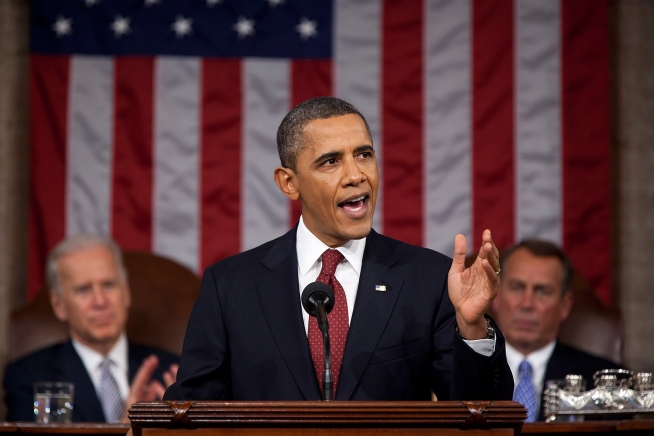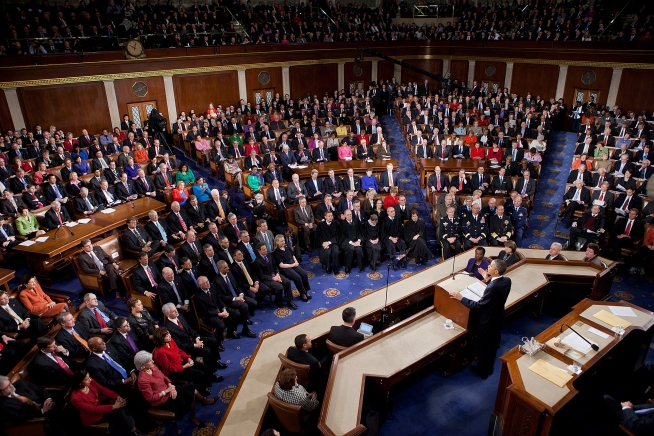
President Obama surprised many of us climate-action types during his recent State of the Union speech. He caught us off guard by actually uttering the words "climate change."
Here's what the President said: "The differences in this chamber may be too deep right now to pass a comprehensive plan to fight climate change."
The President's mention of climate change came during his discussion of energy, where for the first time he used the rhetoric of House Republicans in calling for an "all of the above" energy strategy, what the President also described as an "American-made" energy approach. He then went on to say "... and tonight, I'm directing my administration to open more than 75 percent of our potential offshore oil and gas resources."
Oh boy. All this doesn't sound promising: Washington continuing to fiddle while the climate burns.

But strangely enough, there could be a bit of hope mixed in there.
Before I explain that, here's another bit of hope. The Energy Information Administration (EIA) recently released its annual forecast. (The EIA is an independent analytical agency of the federal government that tracks energy use and trends, including greenhouse gas emissions.) It projects that US carbon dioxide pollution will be 7 percent below the 2005 level in 2020, and will continue to stay below 2005 levels through 2035 even with a 25 percent rise in population. This results from increased fuel economy standards, appliance standards, federal clean air regulations, state policies requiring more renewable energy, and a rise in natural gas use, but doesn't yet include two other major policies that will reduce emissions further -- the mercury regulation of power plants and the next round of fuel economy standards.
While we're moving in the right direction, this current projection is less than half of our commitment we made at the 2009 international climate talks in Copenhagen (or 17 percent below 2005 levels, which itself isn't enough to overcome global warming).
So here's the deal: we're on the right path, but without comprehensive legislation we won't get there. With it, we can.
Here's something else we must keep in mind. Global emissions must peak between 2015-17. That means the next presidential administration will be the most important one there will ever be when it comes to overcoming global warming, making this the most consequential presidential election ever on climate change.
All of this brings us back to the President's State of the Union and what he said about overcoming global warming: "The differences in this chamber may be too deep right now to pass a comprehensive plan to fight climate change."
First, the President was simply stating the truth. Passing comprehensive climate legislation now? We're talking the proverbial snow ball's chance.
But why bring it up at all, if you're not going to try in the future?
I think the President understands we need to address climate change. But I also think that if the next President hasn't run on overcoming global warming, hasn't clearly stated that passing "a comprehensive plan to fight climate change" will be one of his top priorities as President, then he won't have the moral and political authority to demand that Congress step up to the plate and do so.
The President's mention of climate change in the State of the Union actually offered a ray of hope. When he clearly states that overcoming global warming will be a top priority if he wins a second term, that ray will turn into a burst of sunshine. We can only hope that the Republican nominee will do the same. Hope, after all, springs eternal.